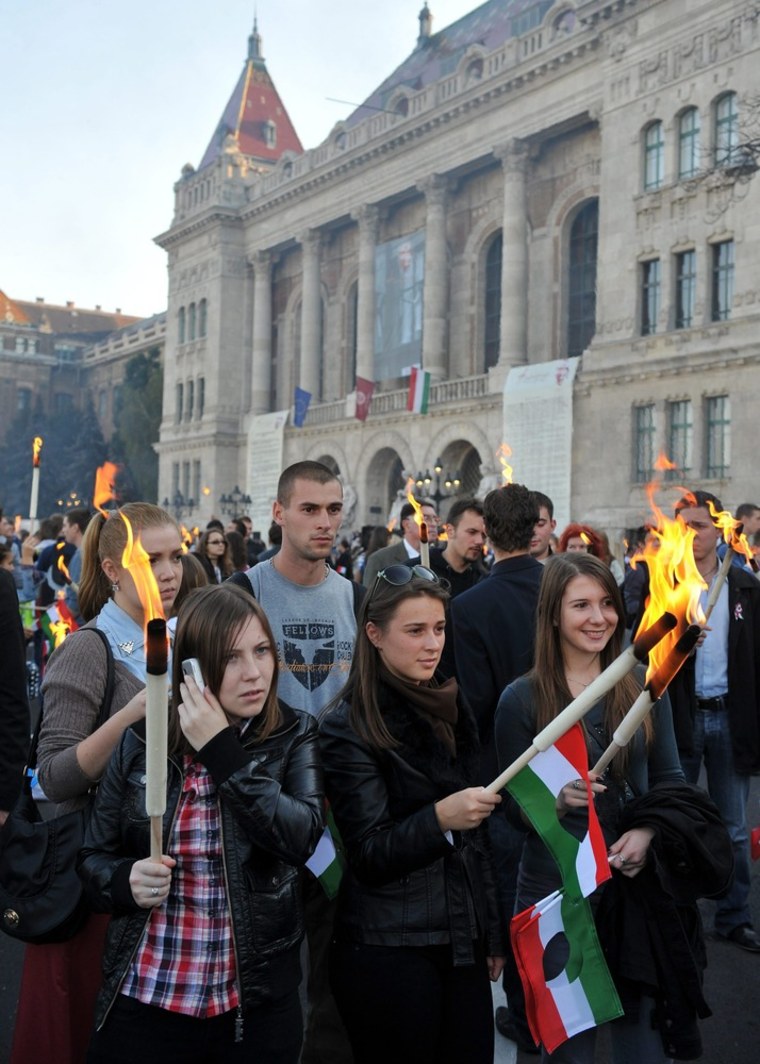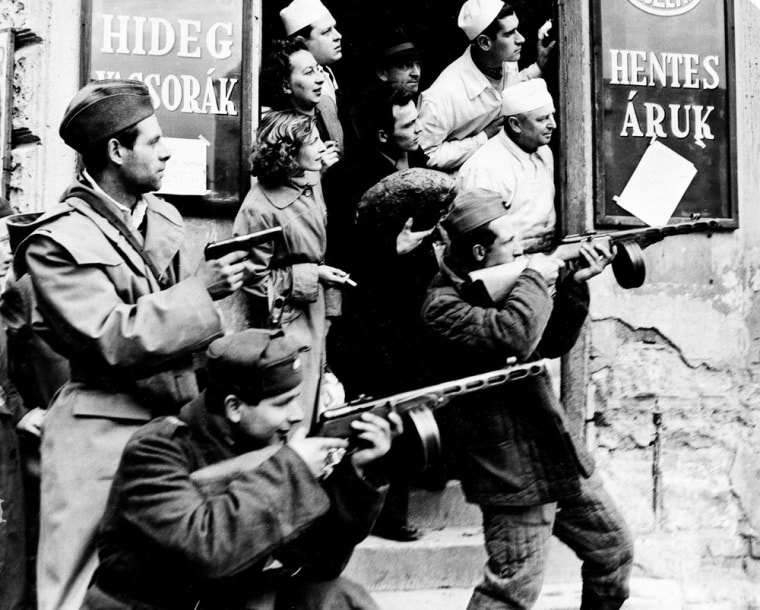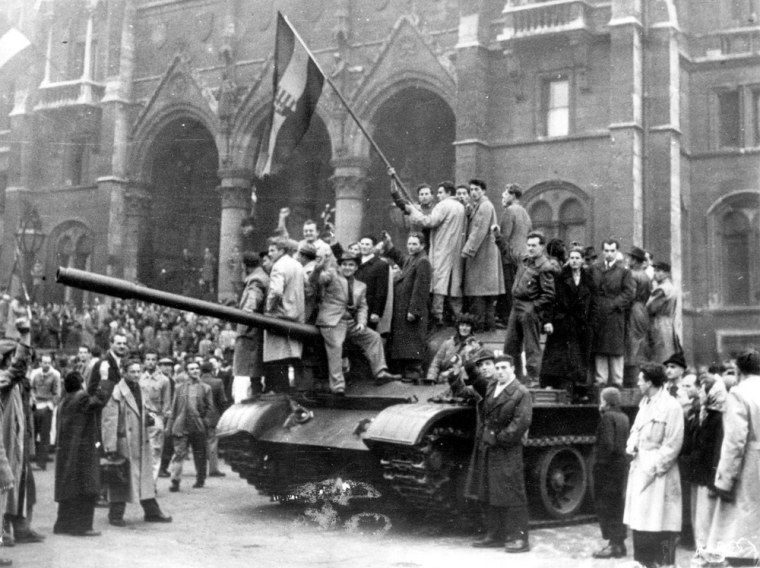Hungarians are feuding bitterly amongst themselves as they mark the 56th anniversary on Tuesday of the revolt in which the nation rose up to overthrow Soviet rule in a 1956 revolution.
With politicians of the ruling right and opposition left at loggerheads, Hungary will have two separate mass rallies, one for and one against Prime Minister Viktor Orban's government, highlighting sharps divisions over his controversial reforms.
Hungary's uprising in 1956 was the first serious blow to the Soviet bloc established after Soviet tanks drove out Nazi German troops from Central Europe at the end of World War Two. Though the uprising was crushed, its impact was lasting and it played a role in the collapse of Soviet rule three decades later.
The anniversary will give the conservative Orban, whose centralizing style and unorthodox policies alienated throngs of supporters since a 2010 election landslide, a symbolic platform to brandish his go-it-alone approach to fixing the economy.
Shunning European Union advice from Brussels, which Orban compares to Hungary's former communist ruler Moscow, the premier has flagged higher taxes on banks and other big businesses to curb the budget deficit.
"We ... will clearly signal over the next days, weeks and months that Hungary will not backtrack one iota from its stance that the West is mishandling its crisis," Economy Minister Gyorgy Matolcsy said on state radio on Monday.

"This is their problem, but in Hungary we refuse to build our policies on flawed recipes and austerity packages," said Matolcsy, the architect of Hungary's unorthodox measures such as Europe's highest bank levy and special taxes on various sectors.
Orban will address supporters from 4 p.m. local time (10 a.m. ET) outside parliament, while opposition groups will stage a rally in central Budapest from 3 p.m. local time (9 a.m. ET) featuring a speech by former Prime Minister Gordon Bajnai, Orban's predecessor.
iPad used to draft Hungarian constitution
The far-right Jobbik party, which holds 45 of 386 parliament seats and has capitalized on widespread resentment of Hungary's around 700,000 Roma, will hold a rally of its own from 3 p.m. local time (9 a.m. ET).
'A very specific message'
Critics say the government's measures and its reluctance to change its flagship flat-tax policy have prolonged a crisis in the central European country of 10 million people which is seeking an international loan to shore up its shrinking economy.
Orban's ruling Fidesz and the main opposition Socialists both nudged higher in an October opinion poll, while more than half of eligible voters had no party preference.
Organizers of the opposition rally, which attracted about 25,000 people last year, say they want to send a strong signal that a change of government is needed at an election due in the first half of 2014.

"We formed a political association to convey a very specific message to replace the current government of Viktor Orban," Peter Juhasz, chairman of opposition group Milla, which is organizing the rally, told Reuters.
Some in the opposition camp, like Juhasz, hope that Bajnai, who led a government of technocrats supported by the Socialists in 2009-2010, could emerge as a credible challenger to Orban and sway millions of undecided voters.
The 44-year-old Bajnai, who implemented an International Monetary Fund program that pulled Hungary back from the brink of bankruptcy in 2008, called for an "immediate and radical" turnaround in economic policy in a speech last week.
Hungary President Pal Schmitt quits in plagiarism scandal
Organizers of the pro-government rally, which will march across central Budapest to parliament where Orban is speaking, say they want to express support for the government which they say resists outside meddling in Hungary's affairs.
"The European Union and the European Commission have not abandoned their attack against Hungary," political scientist Tamas Fricz, an organizer of the rally told conservative daily Magyar Nemzet in an interview on Monday.
"We need to show ... that the government, which defends national sovereignty is not in a vacuum, that it has a majority."
More world stories from NBC News:
- Top 10 foreign policy issues facing a new president
- Castro: I'm so healthy I don't 'even remember what a headache is'
- Hate crimes increase, extreme right strengthens as Greece economy sinks
- Report: Several killed in Damascus car bomb ahead of Syria truce talks
- Source: No deal yet on US-Iran nuclear talks
- Video: Dutch art heist a 'significant loss,' museum says
- Kateri Tekakwitha named first Native American saint in Vatican ceremony
- Documents add to evidence of security fears before Benghazi attack
- Newlywed Afghan beheaded for her refusal to become prostitute
Follow World News from NBCNews.com on and
